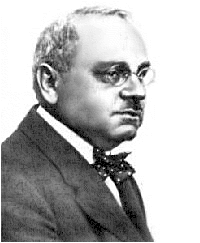Link to this note on  FACEBOOK
FACEBOOK
“Nobody can acquire honor by doing what is wrong”
- Thos. Jefferson
By TOM RUE
As municipal Historian for the Village Monticello, concerned parent, homeowner, taxpayer, and community activist, I have good news!
First, and most important, thanks to the united efforts of caring community members and parents, the Monticello Gymnastic Club will continue unabated. Controversy erupted last week when deputy manager John LeGreci's announced that village youth programs were being shut down because of an alleged lack of insurance coverage, when in fact full coverage existed all along.
Because I have not confined myself to a corner of musty books as our highly paid "managers" would wish, Village Manager John Barbite informed me tonight he plans on "dismissing" me from my unpaid, volunteer post as Village Historian.
I immediately thanked Mr. Barbarite for his public tirade against me and others by name during his report to the board. His objection to comments on the web supporting youth programs, open government, and simple honesty show his true character.
I will take this dismissal as the highest honor John Barbarite is capable of giving. It was sad to see how he lost it in public at tonight's meeting, screaming he would oust me from my unpaid job because he says I make him and the Village look bad for calling history in the making as I see it.
The only words I spoke during tonight's meeting were when I observed that "management" does not seem to be accepting direction from the Board of Trustees regarding a major Broadway economic development project, and the "special counsel" (the Trustees are denied a corporate Village Attorney) appears to take direction from management rather than the board.
Smiling, I reminded Mr. Barbarite that he knows I am not one likely to be enticed into silence by an honorary title. If, in the future, after he has been fired yet a third time, or when he retires, or shuffles off this mortal coil, should I survive him in this life, if the fates allow, I would be pleased to serve again as a municipal Historian.
Over my 25 years in public service, I have found countless satisfying ways to volunteer my free time without pay in government, human services, and matters of the spirit. However, when it comes to twisting my perspective of past or current events to fit someone else's selfish demands, my ethics will not permit this.
I have been pleased to serve Monticello as a volunteer in this capacity. But to be removed for advocating on behalf of the community, and for personally supporting my wife as an elected public official (whom Mr. Barbarite openly despises and repeatedly disrespects, despite her superior position to him both in hierarchy and intellect, seemingly in part due to her gender and ethnicity), is no disgrace. I base this on sworn depositions of multiple people, some of whom are suing Mr. Barbarite in Federal court for violation of civil rights, as well as on the heartfelt convictions of my wife, Carmen Rue.
It has been an honor to serve the Village of Monticello as Historian. I wish to acknowledge former Manager Zachary Kelson for entrusting me the appointment. Mr. Kelson served the Village well during his tenure and deserved far more thanks than he received. But should anyone be surprised at that, given who we are working with?
I have accomplished more than any other Monticello historian since Mr. and Mrs. Smith who served for decades as a husband-wife team. Still, I have kept extremely busy over the last year - responding to public inquiries (actually something that I have done for years anyway, due to the quantities of local historical material on my website (tomrue.net), hosted on my own server, at my own expense, which I will continue to do.
Family and Local History Studies was my undergraduate major for the first two years of my higher education. It has been and will remain my avocation. I have what a former Monticello Village Manager described, roughly 15 years ago, as an extraordinary "sense of place" and love for this community, especially as a non-native.
I have the greatest respect for the generosity of the good people of Monticello, and it is to these folks that I have dedicated my pictorial history, entitled "Monticello", now in production, slated to be released on November 1st. This book casts Monticello's past in a very positive light, and gives hope for a better future. I believe local sales of the book will be successful, and will benefit our community.
 Two comments attributed to Dr. Alfred Adler:
Two comments attributed to Dr. Alfred Adler:

 FACEBOOK
FACEBOOK